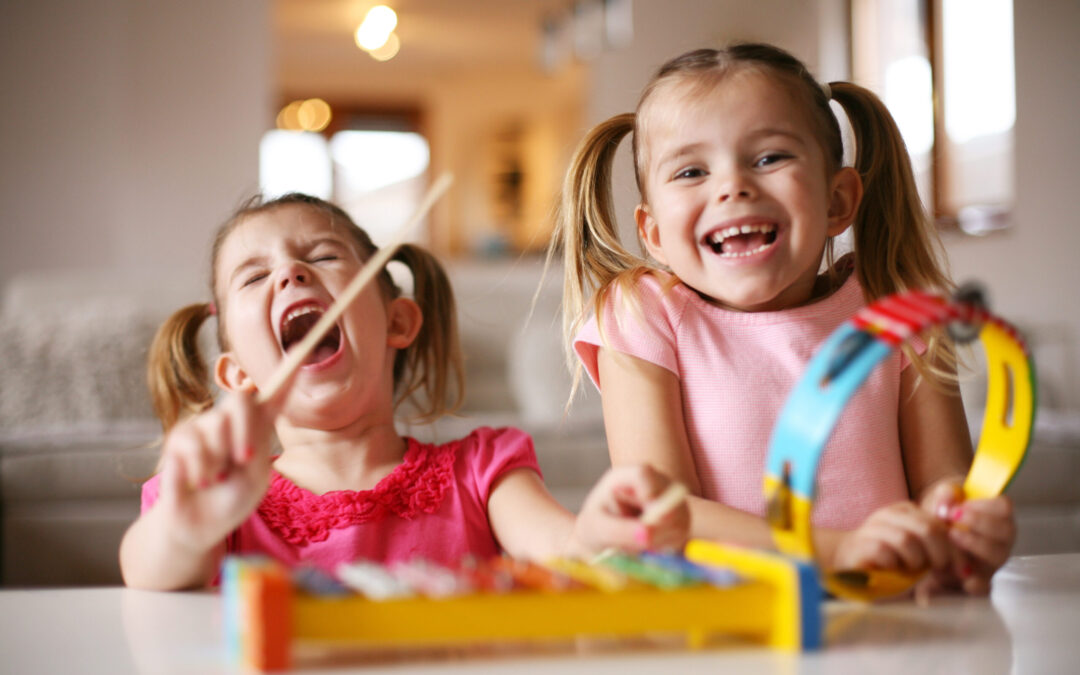As parents, we all want the best for our children. One way you can support your child’s development is through music. Research has shown that music can have a significant impact on a child’s motor and cognitive skills, as well as their social-emotional development. The latter is particularly important for helping children understand and manage emotions, build confidence, and form meaningful relationships.
By making music with your child, you not only bond with them but also provide them with a powerful foundation for a healthy, happy, and successful life. As March is Music in Our Schools Month, join Celebree School as we explore five ways music can foster children’s social and emotional competence as part of a holistic early childhood education approach.
Self-awareness
Listening to music, singing songs, playing instruments, and moving to the rhythm are excellent ways for young children to develop self-awareness. Music can provide them with a creative outlet to express their feelings and emotions, while allowing them to explore their identity and make sense of their experiences. Through engaging in musical activities, children can learn to trust their own abilities and build their own unique sense of self. Additionally, they can explore and learn about their physical and mental capabilities as they experiment with different musical styles and genres.
To encourage self-awareness, play a variety of songs for your child and ask them to identify how each tune makes them feel. You might be surprised by how sensitive your child is to the emotional nuances of music. As you sing along to different tunes, encourage your child to move to the beat to better understand and express how they feel.
Self-regulation
Taking self-awareness one step further, music can also help children learn self-regulation, an important aspect of the Conscious Discipline philosophy. Being able to recognize and understand different emotions helps children react appropriately, maintain composure, and control their behavior. They’ll learn adaptability and resilience in the face of difficult situations. When children can manage their emotions, they are better equipped to stay calm when overwhelmed, solve problems, and cope with stress.
An engaging way to exercise self-regulation skills is by playing musical chairs with your child. This classic game requires children to follow rules, control their impulses, and stay focused to remain in the game.
Social awareness
Exposing children to diverse musical styles helps them understand and appreciate different cultures, traditions, and perspectives, promoting social awareness as well as empathy and cooperation.
To facilitate social awareness, listen to music from different cultures and countries with your child. You can also sing songs that celebrate diversity and inclusion, such as “We are the World” by USA for Africa, “Colors of the Wind” from the Disney movie Pocahontas, and “Brave” by Sara Bareilles.
Relationship skills
Relationship skills are crucial for building healthy and positive connections with others. By participating in musical activities, children learn to develop trust, communicate effectively, cooperate with peers, and resolve conflicts.
A fun way to promote relationship skills is to sing a song where each person sings a different part and must listen to coordinate with others, highlighting each other’s unique contributions. Another activity to try is “Follow the Leader” where one person leads a musical activity and the others must follow and respond, allowing children to take turns leading and following. Through activities like these, children can learn take turns, practice patience, and follow directions.
Responsible decision-making
Learning to make responsible decisions is an essential part of growing up. Through musical experiences, children learn how to assess their options, make choices, and take responsibility for their actions.
To help your child develop their decision-making ability, why not create a musical storybook with them? Together, you can create a story and make choices about the characters and events, including the music that goes along with each scene. You can also plan a musical performance with your child, where they select the music and other aspects of the routine like costumes and props. These delightful activities will encourage your child’s proactive decision-making skills while making memories.
From singing and playing instruments to creating musical stories, there are many creative ways parents and caregivers can use music to support their child’s social-emotional development. With a little fun and creativity, you can help your young one develop the skills they need to succeed and thrive in life. For additional ideas on how to nurture social-emotional growth in your child, browse our mindfulness resources for children, blogs, and other child care and learning materials.

